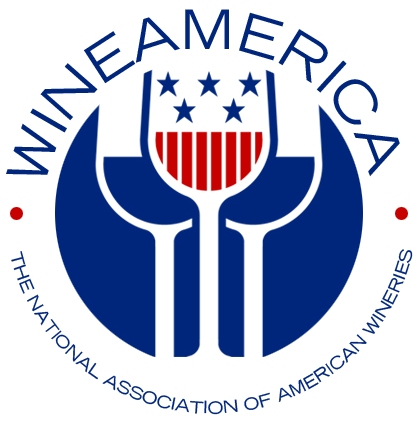By Michael Kaiser, Vice President
1.31.2017
On Monday January 30th, leading House and Senate Members reintroduced the Craft Beverage Modernization and Tax Reform Act. This comprehensive bill would drastically reduce the federal excise tax (FET) burden on wineries, breweries and distilleries. Every congressional district in the United States includes a brewery, winery, distillery, importer or industry supplier, all of whom operate under an outdated tax structure. A reduction in the FET will result in consumers benefiting from greater choice and allow businesses to invest in product development, improve infrastructure and stimulate employment in communities across the country. WineAmerica strongly supports the passage of the Craft Beverage Modernization and Tax Reform Act.
Senate Introduction
The Senate version of the bill (S.236) was introduced by Senator Ron Wyden (D-OR). Senator Wyden has been the main architect of this bill and originally conceived it in June 2015. He was joined by eleven of his fellow Senators on the new version of the bill. This bipartisan piece of legislation features six Democrats and six Republicans as original co-sponsors, they are:
Democrats
Tammy Baldwin- WI
Michael Bennet- CO
Thomas Carper- DE
Robert Casey- PA
Debbie Stabenow- MI
Ron Wyden- OR
Republicans
Roy Blunt- MO
Shelly Moore Capito- WV
Cory Gardner- CO
Jerry Moran- KS
Rob Portman- OH
Pat Roberts- KS
Senator Blunt of Missouri has also been tireless in his support for the bill, he is the chief sponsor on the Republican side.
House Introduction
The House version of the bill (H.R. 747) was once again co-sponsored by Reps. Erik Paulson (R-MN-3) and Ron Kind (D-WI-3). They are joined by a diverse and bipartisan group:
Democrats:
Earl Blumenauer (OR-3)
Peter DeFazio (OR-4)
Ron Kind (WI-3)
Chellie Pingree (ME-1)
Mike Thompson (CA-5)
Republicans
Mark Amodei (NV-2)
Tom Emmer (MN-6)
Mike Kelly (PA-3)
Patrick McHenry (NC-10)
Dan Newhouse (WA-4)
David Reichert (WA-8)
Patrick Tiberi (OH-12)
Major Provisions for Wine
The major tax relief provisions specific to wine are nearly identical to the previous amended version of the bill, with some minor additions:
Expand Excise Tax Credit for Wineries
Under present law, wine is subject to an excise tax of between $1.07 and $3.40 per gallon, based on alcohol content and carbonation level. Qualifying small domestic wineries producing 250,000 wine gallons or less are eligible for a tax credit generally equal to 90 cents per gallon on the first 100,000 gallons produced, with that benefit phasing out between 150,000 gallons and 250,000 gallons. Hard cider is taxed as wine, subject to lower rates and a reduced credit amount. This provision removes the phaseout and replaces the credit with a new tiered credit system for wine produced in the U.S. or imported as follows: $1.00 for the first 30,000 wine gallons, $0.90 for the next 100,000 wine gallons, and $0.535 for the next 620,000 wine gallons. In addition, this provision removes the existing prohibition against claiming the credit for naturally sparkling wines. Conforming expansions are made to the cider credit. Find an estimate of your new tax rate here
Expand Alcohol Threshold for Certain Wines
Under current law, still wine is taxed at different rates based on alcohol content. Still wine containing not more than 14 percent ABV is taxed at $1.07. Still wine above 14 percent and less than 21 percent ABV is taxed at $1.57 per gallon. For labeling purposes only, alcohol content in wine may vary from the stated amount within certain tolerances, however no such tolerances exist for tax purposes. This proposal would provide that wines up to 16 percent ABV may qualify for the $1.07 tax rate, in order to provide more certainty for wine producers.
Increased Carbonation Tolerances for Certain Low ABV Wines
Present law provides a tolerance for still wine of 0.392 gram of carbon dioxide per hundred milliliters of wine, which is generally taxed at $1.07 per wine gallon. Wines exceeding this limitation are taxed as “sparkling wine” at either $3.30 or $3.40 per wine gallon. This provision would increase that tolerance to 0.64 gram of carbon dioxide per hundred milliliters of wine for wines produced primarily from grape or solely from honey and water, which do not contain any other fruit and contains no more than 8.5 percent ABV.
Reduce Compliance and Tax Burdens for all Producers, and Improve Excise Tax Administration
The bill exempts beverage producers from complex capitalization rules for aged products, removing the requirement that bottle aging be considered in production time. The bill also continues TTB funding increases that were secured in for FY 2016 of $5 million for label and formula approval and $5 million for fair trade practice enforcement. The increases are to be authorized for FY 2017 and FY 2018, along with an additional $5 million for the cost of implementing the bill, including new federal permit approvals.
Next Steps for WineAmerica
With the reintroduction of the bill, WineAmerica will now begin the process of securing additional co-sponsors. At the end of the last legislative year, the bill had nearly 300 House co-sponsors and 53 Senators. Along with our alcohol industry partners, our goal will be to match or exceed the totals from 2016. Concurrently we will be meeting with the relevant House and Senate Committees as the agenda for tax reform is set. We look forward to working with our members and Congress to to ensure the FET burden on the beer, wine and spirits sector is at the forefront of the discussion.
***
WineAmerica is the national voice the American wine industry. Based in Washington, D.C., WineAmerica represents wineries in 43 states and leads a coalition of state and regional wine and grape associations. As an industry leader, WineAmerica encourages the dynamic growth and development of American wineries and winegrowing through the advancement and advocacy of sound public policy.


